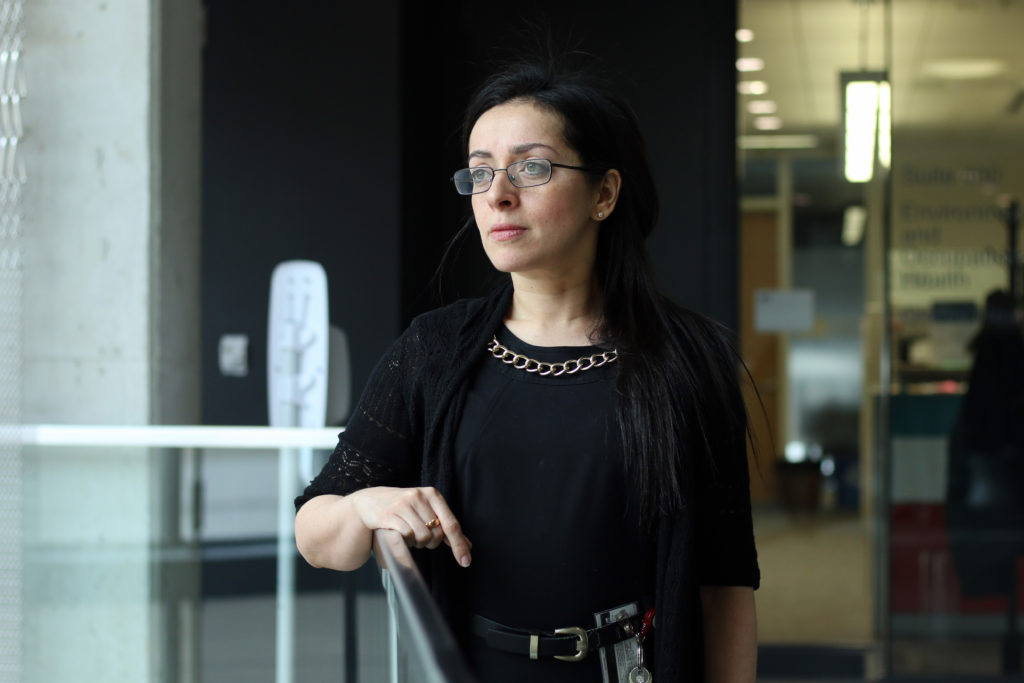A researcher in the public health school was awarded $1.2 million last semester to research how infants contract a type of infectious bacteria found in rural Bangladesh.
Amira Roess, an assistant professor of global health, was a researcher from one of three institutions to win the grant from the Bill and Melinda Gates Foundation late last year, which was announced for the first time earlier this month. The team applied for the grant last July, she said.
The study will be the first to investigate several aspects of the bacteria’s transmission, including social, seasonal and genomic factors, according to a release from the Milken Institute School of Public Health earlier this month.
Roess said the researchers will investigate Campylobacter, a type of bacteria that most commonly causes diarrhea, and explore the reasons why infants in Bangladesh contract the microorganisms. The research team is comprised of scientists from the Quadram Institute in Norwich, England and the Child Health Research Foundation in Bangladesh, she said.
Campylobacter is typically linked to exposure to live poultry and consumption or exposure to raw poultry products. The bacteria is one of four main causes of diarrheal diseases worldwide and affects about 550 million people each year globally, according to the World Health Organization.
Roess said the two-year investigation is designed as a “longitudinal study” in which the team will collect fecal samples from infants’ mothers throughout their pregnancies and from one sibling in each household. She said the team will also take samples of food, water, the environment and animals close to each house to determine where the infants are “picking up” the bacteria.
“We will follow infants from birth through their first nine months of life to understand when they become infected with Campylobacter bacteria,” Roess said in an email.
Roess said diarrhea remains a “major cause” of death among infants in settings with “few resources.” She said “vast improvements” in technology have allowed researchers to sequence samples from previous studies to identify the causes of diarrhea in infants and children.
She added that Campylobacter bacteria was “surprisingly” in the top seven causes of diarrheal diseases in the age group.
“If we can find out what causes Campylobacter transmission, then we might be able to prevent its spread and thus save lives,” she said.
While the infection is common and generally does not require treatment, Campylobacter can be fatal to children, the elderly and people with weak immune systems, according to the World Health Organization.
John Wain, a research leader of bacterial diversity and tropical infections for the Quadram Institute in England who is working on the project, said development of new diagnostic technology in Bangladesh will aid in answering the team’s question of how the bacteria infects infants.
“It allows us to answer questions which are really important to people living in regions where infection remains a killer,” Wain said.
The grant is a part of the Bill and Melinda Gates Foundation’s ongoing effort to tackle enteric and diarrheal diseases.
Kitty Harding, the foundation’s program officer of global health communications, said diarrhea is the second-leading infectious killer of children worldwide, and studies suggest repeated gut infections can affect a child’s ability to absorb nutrients and develop cognitively.
“Our primary focus is to advance the development of safe, affordable and effective vaccines for the leading causes of diarrheal and enteric diseases in low- and lower-middle-income countries,” Harding said. “And to inform decisions on when and how to deploy new interventions and expand the use of existing ones. We fund research on the global and regional burden of these diseases.”





